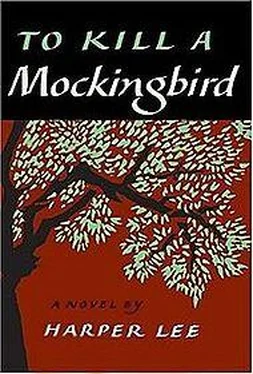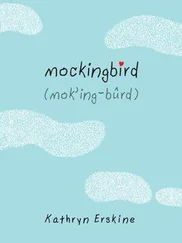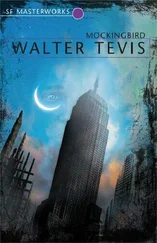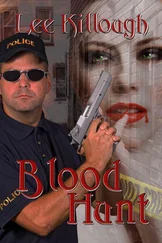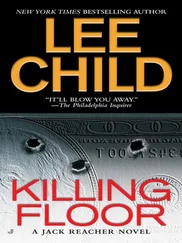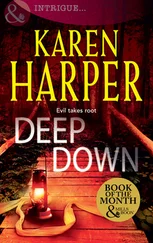Lee Harper - To Kill a Mockingbird
Здесь есть возможность читать онлайн «Lee Harper - To Kill a Mockingbird» весь текст электронной книги совершенно бесплатно (целиком полную версию без сокращений). В некоторых случаях можно слушать аудио, скачать через торрент в формате fb2 и присутствует краткое содержание. Жанр: Современная проза, на английском языке. Описание произведения, (предисловие) а так же отзывы посетителей доступны на портале библиотеки ЛибКат.
- Название:To Kill a Mockingbird
- Автор:
- Жанр:
- Год:неизвестен
- ISBN:нет данных
- Рейтинг книги:3 / 5. Голосов: 1
-
Избранное:Добавить в избранное
- Отзывы:
-
Ваша оценка:
- 60
- 1
- 2
- 3
- 4
- 5
To Kill a Mockingbird: краткое содержание, описание и аннотация
Предлагаем к чтению аннотацию, описание, краткое содержание или предисловие (зависит от того, что написал сам автор книги «To Kill a Mockingbird»). Если вы не нашли необходимую информацию о книге — напишите в комментариях, мы постараемся отыскать её.
To Kill a Mockingbird — читать онлайн бесплатно полную книгу (весь текст) целиком
Ниже представлен текст книги, разбитый по страницам. Система сохранения места последней прочитанной страницы, позволяет с удобством читать онлайн бесплатно книгу «To Kill a Mockingbird», без необходимости каждый раз заново искать на чём Вы остановились. Поставьте закладку, и сможете в любой момент перейти на страницу, на которой закончили чтение.
Интервал:
Закладка:
Tom was twenty-five years of age; he was married with three children; he had been in trouble with the law before: he once received thirty days for disorderly conduct.
“It must have been disorderly,” said Atticus. “What did it consist of?”
“Got in a fight with another man, he tried to cut me.”
“Did he succeed?”
“Yes suh, a little, not enough to hurt. You see, I—” Tom moved his left shoulder.
“Yes,” said Atticus. “You were both convicted?”
“Yes suh, I had to serve ‘cause I couldn’t pay the fine. Other fellow paid his’n.”
Dill leaned across me and asked Jem what Atticus was doing. Jem said Atticus was showing the jury that Tom had nothing to hide.
“Were you acquainted with Mayella Violet Ewell?” asked Atticus.
“Yes suh, I had to pass her place goin’ to and from the field every day.”
“Whose field?”
“I picks for Mr. Link Deas.”
“Were you picking cotton in November?”
“No suh, I works in his yard fall an’ wintertime. I works pretty steady for him all year round, he’s got a lot of pecan trees’n things.”
“You say you had to pass the Ewell place to get to and from work. Is there any other way to go?”
“No suh, none’s I know of.”
“Tom, did she ever speak to you?”
“Why, yes suh, I’d tip m’hat when I’d go by, and one day she asked me to come inside the fence and bust up a chiffarobe for her.”
“When did she ask you to chop up the — the chiffarobe?”
“Mr. Finch, it was way last spring. I remember it because it was choppin’ time and I had my hoe with me. I said I didn’t have nothin’ but this hoe, but she said she had a hatchet. She give me the hatchet and I broke up the chiffarobe. She said, ‘I reckon I’ll hafta give you a nickel, won’t I?’ an’ I said, ‘No ma’am, there ain’t no charge.’ Then I went home. Mr. Finch, that was way last spring, way over a year ago.”
“Did you ever go on the place again?”
“Yes suh.”
“When?”
“Well, I went lots of times.”
Judge Taylor instinctively reached for his gavel, but let his hand fall. The murmur below us died without his help.
“Under what circumstances?”
“Please, suh?”
“Why did you go inside the fence lots of times?”
Tom Robinson’s forehead relaxed. “She’d call me in, suh. Seemed like every time I passed by yonder she’d have some little somethin’ for me to do — choppin’ kindlin’, totin’ water for her. She watered them red flowers every day—”
“Were you paid for your services?”
“No suh, not after she offered me a nickel the first time. I was glad to do it, Mr. Ewell didn’t seem to help her none, and neither did the chillun, and I knowed she didn’t have no nickels to spare.”
“Where were the other children?”
“They was always around, all over the place. They’d watch me work, some of ‘em, some of ‘em’d set in the window.”
“Would Miss Mayella talk to you?”
“Yes sir, she talked to me.”
As Tom Robinson gave his testimony, it came to me that Mayella Ewell must have been the loneliest person in the world. She was even lonelier than Boo Radley, who had not been out of the house in twenty-five years. When Atticus asked had she any friends, she seemed not to know what he meant, then she thought he was making fun of her. She was as sad, I thought, as what Jem called a mixed child: white people wouldn’t have anything to do with her because she lived among pigs; Negroes wouldn’t have anything to do with her because she was white. She couldn’t live like Mr. Dolphus Raymond, who preferred the company of Negroes, because she didn’t own a riverbank and she wasn’t from a fine old family. Nobody said, “That’s just their way,” about the Ewells. Maycomb gave them Christmas baskets, welfare money, and the back of its hand. Tom Robinson was probably the only person who was ever decent to her. But she said he took advantage of her, and when she stood up she looked at him as if he were dirt beneath her feet.
“Did you ever,” Atticus interrupted my meditations, “at any time, go on the Ewell property — did you ever set foot on the Ewell property without an express invitation from one of them?”
“No suh, Mr. Finch, I never did. I wouldn’t do that, suh.”
Atticus sometimes said that one way to tell whether a witness was lying or telling the truth was to listen rather than watch: I applied his test — Tom denied it three times in one breath, but quietly, with no hint of whining in his voice, and I found myself believing him in spite of his protesting too much. He seemed to be a respectable Negro, and a respectable Negro would never go up into somebody’s yard of his own volition.
“Tom, what happened to you on the evening of November twenty-first of last year?”
Below us, the spectators drew a collective breath and leaned forward. Behind us, the Negroes did the same.
Tom was a black-velvet Negro, not shiny, but soft black velvet. The whites of his eyes shone in his face, and when he spoke we saw flashes of his teeth. If he had been whole, he would have been a fine specimen of a man.
“Mr. Finch,” he said, “I was goin’ home as usual that evenin’, an’ when I passed the Ewell place Miss Mayella were on the porch, like she said she were. It seemed real quiet like, an’ I didn’t quite know why. I was studyin’ why, just passin’ by, when she says for me to come there and help her a minute. Well, I went inside the fence an’ looked around for some kindlin’ to work on, but I didn’t see none, and she says, ‘Naw, I got somethin’ for you to do in the house. Th’ old door’s off its hinges an’ fall’s comin’ on pretty fast.’ I said you got a screwdriver, Miss Mayella? She said she sho’ had. Well, I went up the steps an’ she motioned me to come inside, and I went in the front room an’ looked at the door. I said Miss Mayella, this door look all right. I pulled it back’n forth and those hinges was all right. Then she shet the door in my face. Mr. Finch, I was wonderin’ why it was so quiet like, an’ it come to me that there weren’t a chile on the place, not a one of ‘em, and I said Miss Mayella, where the chillun?”
Tom’s black velvet skin had begun to shine, and he ran his hand over his face.
“I say where the chillun?” he continued, “an’ she says — she was laughin’, sort of — she says they all gone to town to get ice creams. She says, ‘took me a slap year to save seb’m nickels, but I done it. They all gone to town.’”
Tom’s discomfort was not from the humidity. “What did you say then, Tom?” asked Atticus.
“I said somethin’ like, why Miss Mayella, that’s right smart o’you to treat ‘em. An’ she said, ‘You think so?’ I don’t think she understood what I was thinkin’ — I meant it was smart of her to save like that, an’ nice of her to treat em.”
“I understand you, Tom. Go on,” said Atticus.
“Well, I said I best be goin’, I couldn’t do nothin’ for her, an’ she says oh yes I could, an’ I ask her what, and she says to just step on that chair yonder an’ git that box down from on top of the chiffarobe.”
“Not the same chiffarobe you busted up?” asked Atticus.
The witness smiled. “Naw suh, another one. Most as tall as the room. So I done what she told me, an’ I was just reachin’ when the next thing I knows she — she’d grabbed me round the legs, grabbed me round th’ legs, Mr. Finch. She scared me so bad I hopped down an’ turned the chair over — that was the only thing, only furniture, ‘sturbed in that room, Mr. Finch, when I left it. I swear ‘fore God.”
“What happened after you turned the chair over?”
Читать дальшеИнтервал:
Закладка:
Похожие книги на «To Kill a Mockingbird»
Представляем Вашему вниманию похожие книги на «To Kill a Mockingbird» списком для выбора. Мы отобрали схожую по названию и смыслу литературу в надежде предоставить читателям больше вариантов отыскать новые, интересные, ещё непрочитанные произведения.
Обсуждение, отзывы о книге «To Kill a Mockingbird» и просто собственные мнения читателей. Оставьте ваши комментарии, напишите, что Вы думаете о произведении, его смысле или главных героях. Укажите что конкретно понравилось, а что нет, и почему Вы так считаете.
